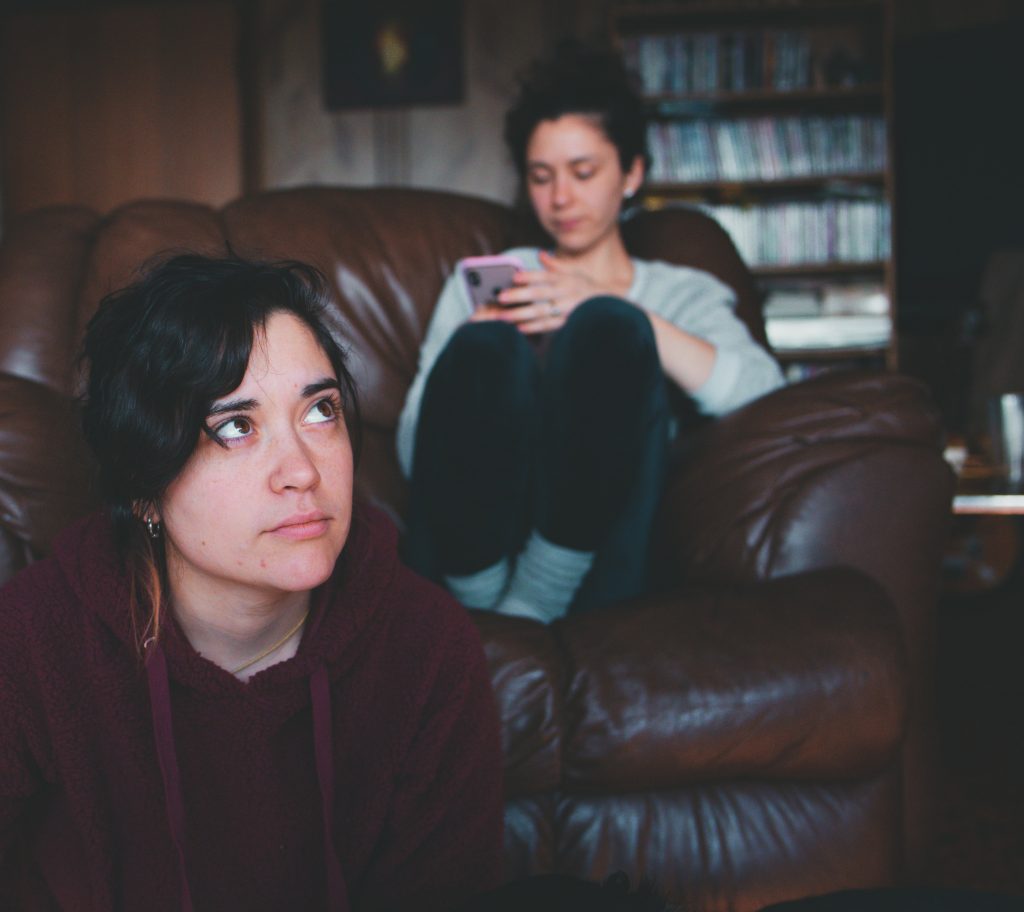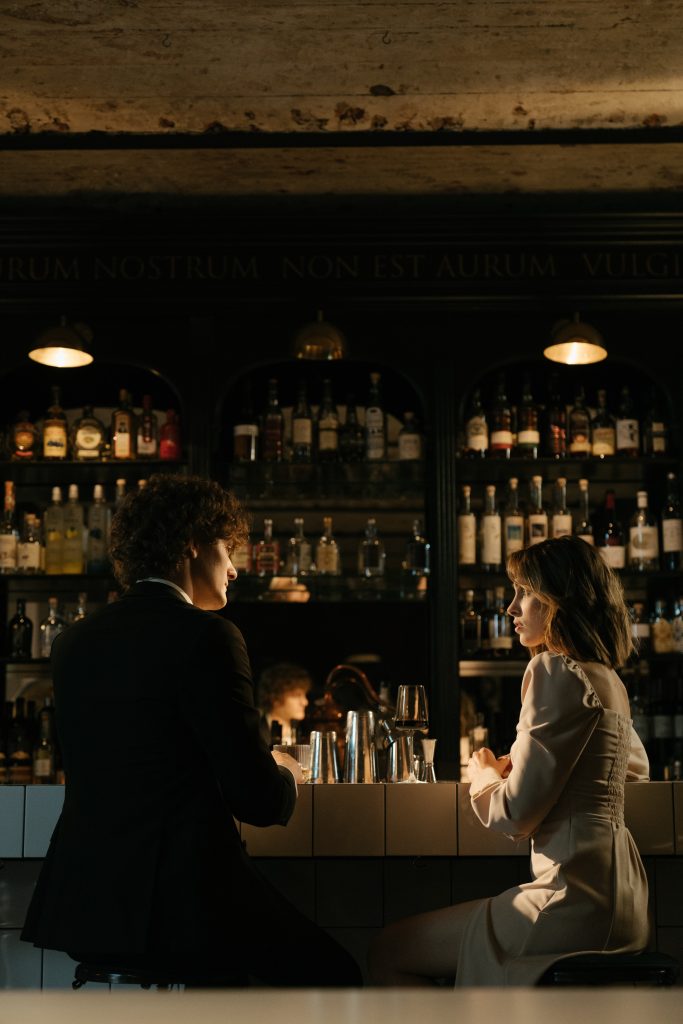6 Types of Eye Contact and What They Really Mean

Hey, Psych2Goers! Before we get started, this is a disclaimer that this article is only for entertainment purposes. While eye contact does have meaning, these types are a theory. They are not backed up by extensive studies or medical professionals, so please do not take them too seriously.
Have you ever wondered what someone was thinking when they looked at you? Whether a quick glance from a coworker or an intense stare from a romantic interest, eye contact may have more depth than you realize. As Shakespeare once said, “The eyes are the window to the soul.” They subconsciously give away how someone feels about a subject, and sometimes, what they’re thinking. Are you curious to know how to analyze eye contact? Learning how could help you understand others better, which is one of the most valuable skills within both your personal and professional life. With this in mind, here are 6 types of eye contact and what they really mean!
1. Frequently interrupted eye contact
Have you ever tried to have a conversation with someone as they scrolled through their phone? Chances are, they replied with an uninterested, “Yeah,” or, “Sure.” However, beyond verbal cues, them glancing elsewhere frequently breaks eye contact between you. Interrupted eye contact means they’re uninterested or too distracted to fully focus on you and your conversation. If it happens all the time, it may suggest a lack of respect and communication within the relationship. You may want to confront them about it, or if it’s a one-time occurrence, simply wait for a better time to talk to them.

2. Glancing
Have you ever gone into a room and noticed people glancing at you? A conscious glance means someone has recognized your presence. It may suggest they plan to approach you and strike up a conversation as well. On the other hand, an unconscious glance isn’t caused by your entrance or a surprising noise. Unconscious glances are usually accidents, and they occur frequently when someone is looking for something or simply observing the room. You’ve probably experienced this awkward accidental eye contact millions of times, so it generally doesn’t signify much.
3. Repeated eye contact
While you may be asking what’s the difference between this and glancing, the key is that it happens more than once. Looking at someone again is a lot more intentional than simply eying them for a brief moment. It’s a sign they’re observing you and taking note of your actions and behaviors. They may make a mental note of who you’re talking to or what your body language portrays in order to better approach you. This generally suggests an interest in you, and if it’s from someone you vaguely know, might mean they’re flirting. If it’s from someone you don’t know or seems suspicious, be careful of this repeated observation. Safety always comes first, so if you’re unsure of the intent behind their repeated eye contact, please don’t hesitate to reach out for support from a friend or, if it becomes dangerous, 911.

4. Staring
Have you ever felt like someone was staring at you? How did it feel? Unsettling, exciting, or maybe both? Someone vacantly staring into space in your general direction normally doesn’t mean anything. However, when it comes to someone intentionally staring at you, there are many things it could mean. For one, it may mean they harbor intense feelings towards you. For example, intense love, attraction, or dislike. The second option is they’re trying to communicate or signal to you. If it’s someone you don’t know, they may be trying to signal they want to approach you. On the other hand, if it’s someone you know, they might stare at you then the exit, indicating they’d like to leave. In the end, staring depends a lot on the context of the situation and who is doing it, so always be mindful and aware of any potentially harmful situations.
5. Prolonged eye contact and smiling
What kind of eye contact do you prefer most in a conversation? Chances are, it’s prolonged eye contact and smiling. This is generally the friendliest type of eye contact and signals that you have their full attention. It’s used the most within engaging conversations and, in the work setting, to show your coworkers and employers you’re paying attention. When someone maintains eye contact and smiles, it’s also a sign of open communication lines as it makes people around them more comfortable talking. While often overlooked, continued eye contact is one of the best ways to show someone you respect and care about what they’re saying.

6. Expressive
Have you ever been in love with anyone? If so, you have probably dreamily looked at them all the time. While they’re a little harder to spot, expressive, dreamy looks often happen in long-term relationships. It’s the fondness, admiration, and utmost care behind the look that makes it so powerful. Similar to giving someone a shoulder rub after a long day, it’s a non-verbal way of saying, “I love you.” This type of look can often be confused with attraction, but it runs deeper than looks. Instead, it’s expressing intense appreciation and tenderness.
The bottom line is that while eye contact is a complex and fascinating topic, in the end, it doesn’t make or break anything. Try not to overanalyze it to the point of forgetting one of the most important parts of social interaction: actually talking to and meeting new people!
Have you noticed these types of eye contact in your daily life? If so, which ones? Feel free to comment down below your experiences, input, or suggestions!
Sources
- Jarick, M., & Bencic, R. (2019, June 4). Eye contact is a two-way Street: Arousal is elicited by the sending and receiving of eye Gaze information. Retrieved March 10, 2021, from https://www.ncbi.nlm.nih.gov/pmc/articles/PMC6558178/
- Jiang, J., Borowiak, K., Tudge, L., Otto, C., & Von Kriegstein, K. (2017, February 1). Neural mechanisms of eye contact when listening to another person talking. Retrieved March 10, 2021, from https://www.ncbi.nlm.nih.gov/pmc/articles/PMC5390711/



Responses